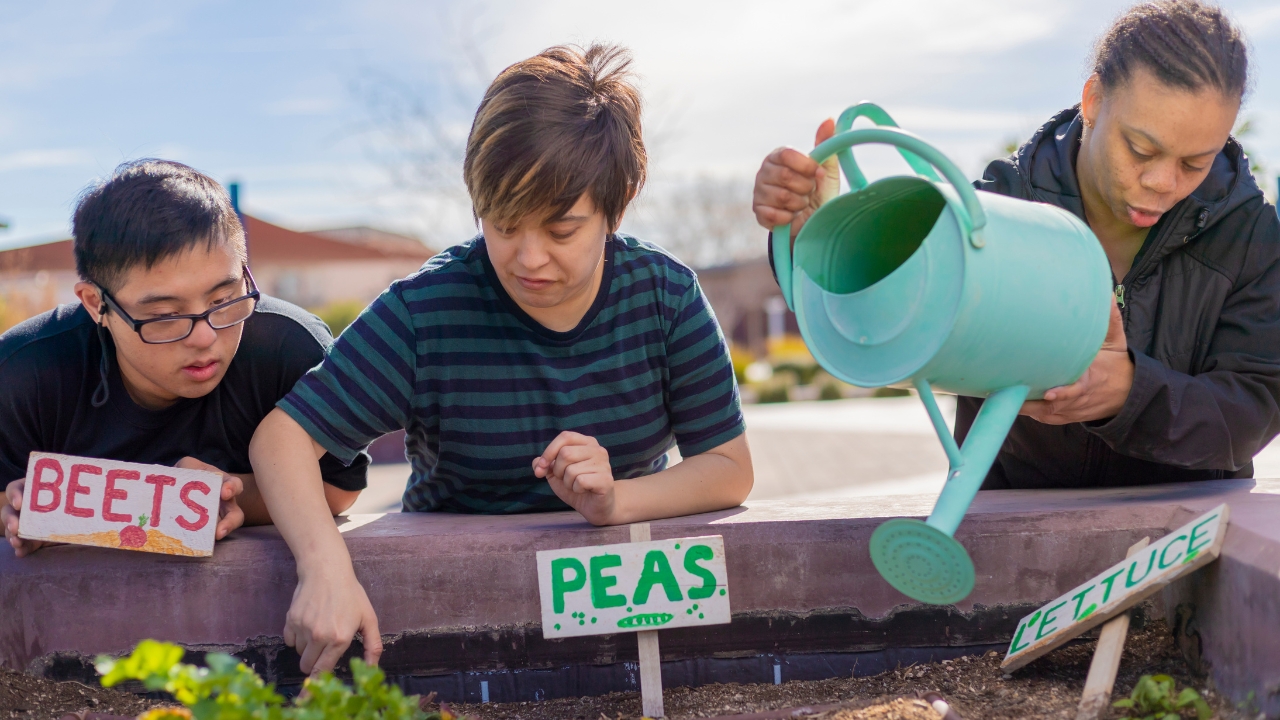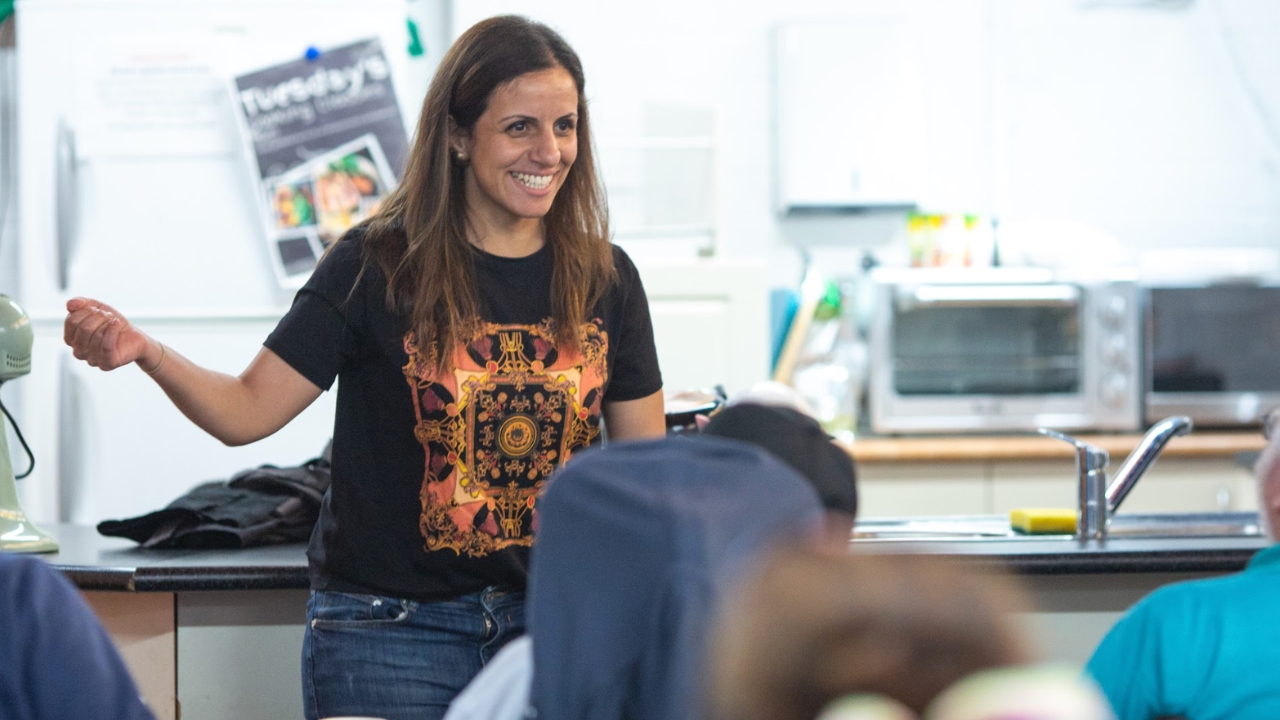In preparation for the upcoming International Day of People with Disability, Tender Loving Care Disability Services launches a series of articles to discuss different disabilities. These articles aim to increase awareness about the individuals we support and our ongoing commitment to their well-being.
For this article, we talk about Intellectual Disability.
Get to Know Intellectual Disability
Intellectual disability, characterised by substantial limitations in cognitive functioning and adaptive behaviour, profoundly impacts an individual’s ability to comprehend information and communicate effectively. This condition can stem from various factors, encompassing both genetic and environmental influences.
Genetic causes are among the primary contributors to intellectual disability. Additionally, prenatal exposure to toxins, infections, or substance abuse can also result in developmental issues leading to intellectual disability. Factors during childbirth, such as birth trauma or inadequate oxygen supply to the brain, can further contribute to this condition. Postnatal factors like infections, head injuries, malnutrition, and exposure to environmental toxins can also play a role.
Diagnosis of intellectual disability can occur at any stage of life, but early detection, often during childhood through developmental assessments, cognitive tests, and behavioural evaluations, is crucial. Timely identification allows for tailored interventions, specialised education, therapies, and support services aimed at enhancing the individual’s quality of life and promoting their integration into society.
Types of Intellectual Disability
Understanding the diverse spectrum of Intellectual Disability involves recognising various conditions that affect cognitive abilities and behavioural patterns. Here are some notable types:
- Fragile X Syndrome: A genetic condition leading to intellectual disabilities and behavioural challenges.
- Down Syndrome: A genetic condition causing developmental delays and intellectual disabilities.
- Developmental Delay: A delay in one or more areas of a child’s development, such as speech or motor skills.
- Prader-Willi Syndrome (PWS): A rare genetic disorder leading to physical, mental, and behavioural issues.
- Fetal Alcohol Spectrum Disorder (FASD): Arising from prenatal exposure to alcohol, resulting in intellectual and behavioural issues.
Creating An Inclusive Environment for People with Intellectual Disability
Creating an inclusive environment for individuals with intellectual disabilities is vital for fostering a sense of belonging and enabling their participation in society. Such an environment positively impacts their emotional well-being and encourages their potential.
To promote inclusivity, consider the following:

At Home
- Ensure clear communication and provide simple instructions.
- Make necessary adjustments to ensure safety and accessibility.
- Encourage independence through daily routines and tasks.
- Foster opportunities for social interactions and friendships, encouraging a supportive family, friends, or community involvement.
- Implement visual schedules, cue cards, or timers to assist in task completion and reinforce routines effectively.

At School
- Implement personalised learning strategies to cater to individual needs.
- Foster peer interactions and social connections.
- Utilise assistive technologies and supportive resources.
- Create sensory-friendly spaces within the school setting.
- Implement positive behaviour support strategies and proactive approaches to address behaviours.

At the Office
- Provide reasonable workplace accommodations.
- Offer training on disability awareness and fostering inclusivity.
- Cultivate a supportive and understanding work culture.
- Establish mentorship programs or peer support networks to provide guidance, encouragement, and assistance.
- Allow flexibility in job roles and tasks, providing opportunities for employees to engage in tasks aligned with their strengths and interests.

Tender Loving Care Disability Services (TLC) embodies a culture of inclusivity and empowerment, prominently showcased through its innovative Frapp & Capp project. This initiative, highlighted in the article “Frapp & Capp Grand Opening,” signifies TLC’s dedication to cultivating a diverse and welcoming workplace.
Where Do We Go From Here?
Recognising the significance of inclusivity for individuals with intellectual disabilities is pivotal for building a more equitable society. Heightened awareness not only nurtures empathy but also empowers communities to create environments where everyone feels valued and included.
The International Day of People with Disability (IDPwD) in 2023 focuses on unity in achieving the Sustainable Development Goals (SDGs) alongside persons with disabilities. This theme signifies collaborative action toward a world where diversity is celebrated, barriers are dissolved, and individuals with disabilities are integral participants in shaping a more inclusive future.
As we move towards these goals, it is evident that we can contribute to a world where #WeAllCan.
REFERENCES:
- Australian Institute for Teaching and School Leadership. (n.d.). “Spotlight: Inclusive education – teaching students with disability.” Retrieved from https://www.aitsl.edu.au/.
- JobAccess. (2016). “Accessibility Checklist for Employers.” Retrieved from https://www.jobaccess.gov.au/.
- International Day of People with Disability. (n.d.). About IDPWD. Retrieved from https://www.idpwd.com.au/.
